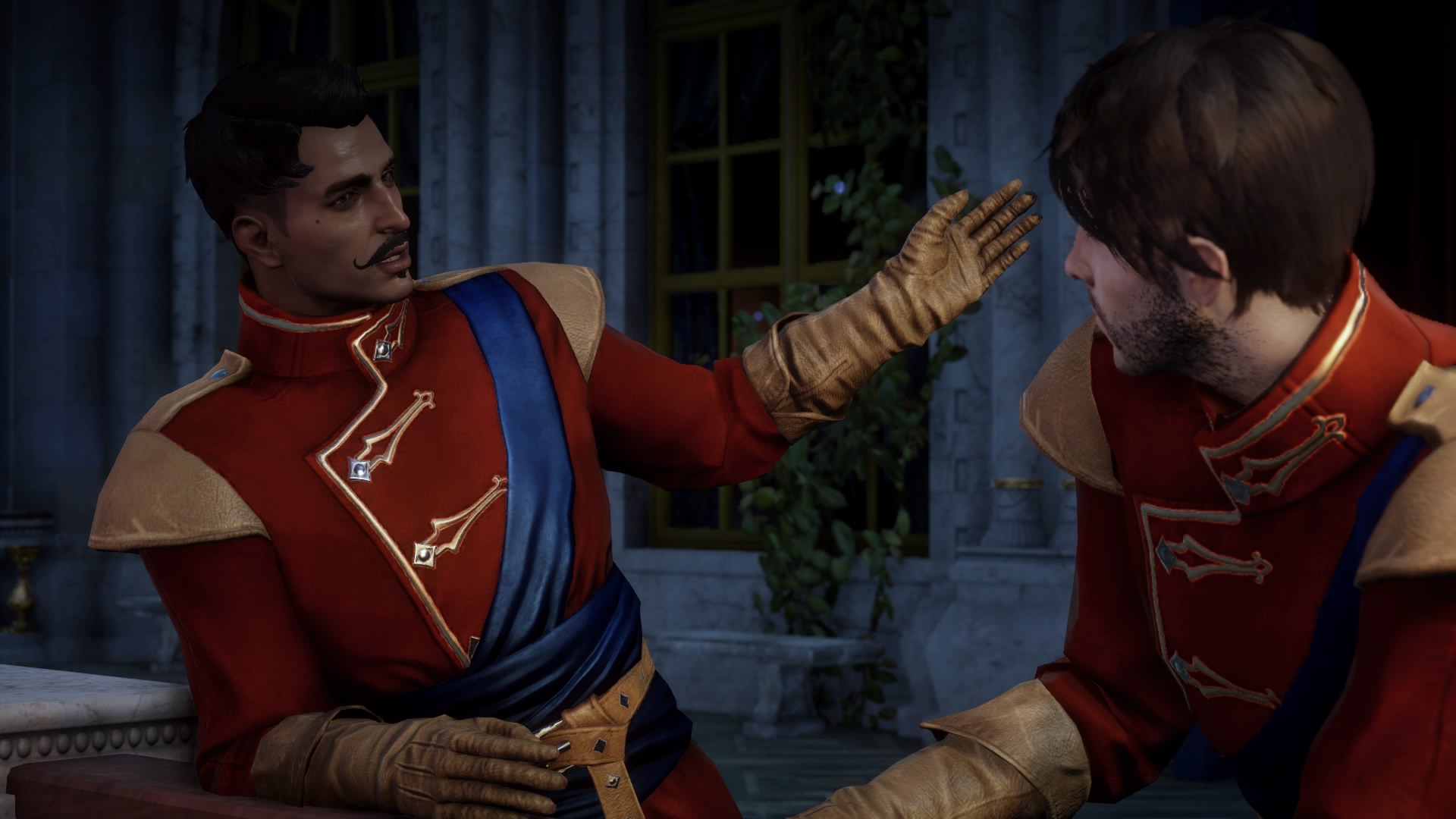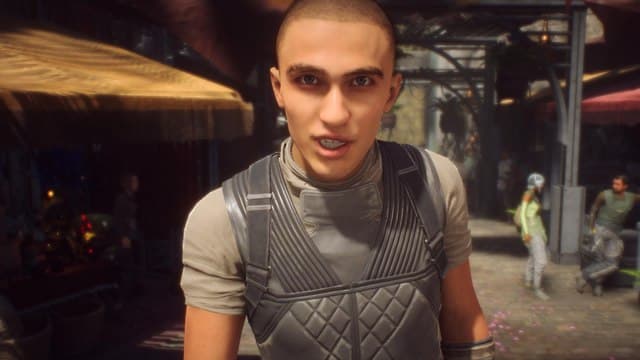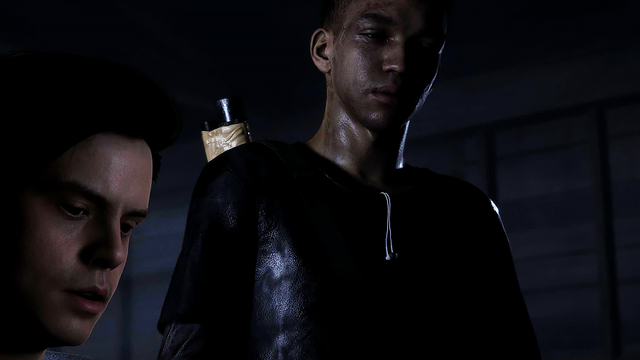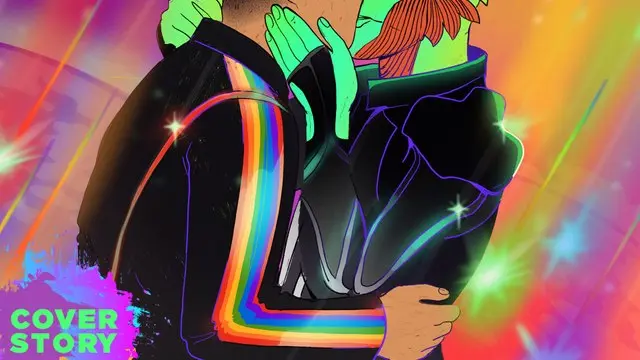On episode 36 of 99 Potions, Fanbyte’s weekly RPG-centric podcast, our News Editor Imran Khan raised some valid concerns about Bioware’s implementation of a heart icon to indicate romantic interest within dialogue options with Dragon Age II.
“They tend to mistake positivity for romantic intention. Cause it gives people these ideas that as long as you’re nice to someone they owe you sex. Which is completely wrong. […] Dragon Age II particularly went a little too hard on this idea by making it so every romantic option has a heart icon. So there is no mistaking what the heart icon does or- there’s no mistaking how you get into this person’s pants. And I think that is a thing that these games need to figure out. Because at some point it makes me feel a little sleazy that you’re basically a pick-up artist in these games. Because you have the exact information- the algorithm has told you exactly how to get this woman in bed. […] I do at some point feel slimy playing this stuff and being like ‘oh, I’m interested in her. Let me just compliment her until her pants come off.’”
But as a gay man who had trouble navigating games like the Mass Effect trilogy due to a deliberate lack of this transparency, I’ve come to appreciate the certainty that comes with having romantic options clearly labeled as such. When it comes to roleplaying a character in a video game, clarity in intent is key. And when it’s taken these games longer to acknowledge your existence, that clarity isn’t taken for granted.
To exist as a gay man in Mass Effect is an act of constant vigilance and pushing back against the game that wants you to be in a heterosexual relationship. Whether by actively denying you any gay romance options until Mass Effect 3, or by insistence that so many women were interested in protagonist Commander Shepard if you’re even remotely polite to them. It took multiple playthroughs of Mass Effect and Mass Effect 2 for me to learn exactly when to be less than friendly to female characters to be sure my gay Shepard’s intentions were never misinterpreted. I had to memorize what dialogue options would lead to a flirtatious smile, or a kiss I didn’t ask for so I could avoid them.
Even when Mass Effect 3 added gay romance, the game hadn’t adopted Dragon Age II’s approach to dialogue options, which had an associated icon to indicate the tone of your decisions. So while I didn’t have a direct indication that a flirting option was, in fact, a flirting option, I was still able to dance with shuttle pilot Steve Cortez at the Purgatory club and then finally solidify my previously unrequited love affair with Major Kaidan Alenko.

You may also like:
- Mass Effect Andromeda: Annihilation Confronts the Series’ Human Bias
- Dragon Age’s Shifting Perspectives Keep Undermining its Personal Stories
- I Tried Giving Anthem a Second Chance, Then it Literally Pulled the Floor Out From Under Me
The use of icons to express just what kind of response your character would give was expanded and improved upon in Dragon Age: Inquisition, then finally made its way to Mass Effect: Andromeda. As such, my version of Dragon Age II’s Hawke, Inquisition’s Inquisitor, and Andromeda’s Ryder were able to safely navigate their worlds as gay men without having to so much as turn a female character down. No woman ever assumed they were interested in them because I knew exactly what dialogue options would carry a romantic connotation.
This categorization of spoken words isn’t exclusive to romance. These games assign tone to every response you’re allowed to give, whether that be humorous, emotional, or stoic. The understanding that comes from these little pieces of art at the center of a dialogue wheel have become key tools in roleplaying a character. Dragon Age: Origins had lines of text for each line your character would recite, and while that might be the most foolproof means of allowing player expression, it does make it harder for characters to feel as alive as when they’re voiced. So despite the friction that sometimes came when I was playing the original Mass Effect trilogy, I still felt like my headcanon didn’t have to do as much heavy lifting for Commander Shepard to be who I believed him to be.

The actual romance mechanics of Bioware games are really not that deep. Picking romantic dialogue options and fulfilling certain requirements in questlines will safely get you through the love story in most cases, so it’s easy to dismiss the addition of a heart as bringing attention to the simplicity of the systems at play. But even those simple systems make way for nuanced, loving relationships.
Did my Ryder make lewd jokes to Gil Brodie about strip poker when I picked options with a heart icon? Yeah. But he also helped Gil find value in responsibility, and is co-fathering a child with him in the Andromeda Galaxy. Was my Inquisitor ready and willing to compliment Dorian Pavus’ good looks when the option arose? Naturally. I mean, you’ve seen him, right? But he was also his rock when he had to face his abusive father, and helped him unlearn his internalized homophobia. A piece of dialogue adorned with a heart icon sets the tone of the relationship, but it’s never the extent of it.

By this point, the lack of explicitly labeled flirt options in the original Mass Effect games is an incredibly dated thing we’ll have to reckon with when the Legendary Edition remasters come out in May. The nuances of Shepard’s dialogue options aren’t as expansive as games like Inquisition and Andromeda, as the original trilogy existed in a moral binary of Paragon and Renegade. But when you’re trying to put the moves on someone or avoid it at all costs, that binary doesn’t work. As these systems become more complex, how they’re communicated to players has to follow suit. Especially when maintaining your identity within a world is contingent on those things being as clear as possible.
On paper, it’s easy to view something like a little heart in your dialogue wheel as an oversimplification of what a romantic relationship is, but a lot of meaning is behind the words and actions that heart represents. Ultimately, these are video games, and the limits of code will rear their heads in one way or another. But when I think of the uncomfortable experiences I dealt with in a time before there was a heart icon on the dialogue wheel, it’s hard to imagine moving forward without it.


